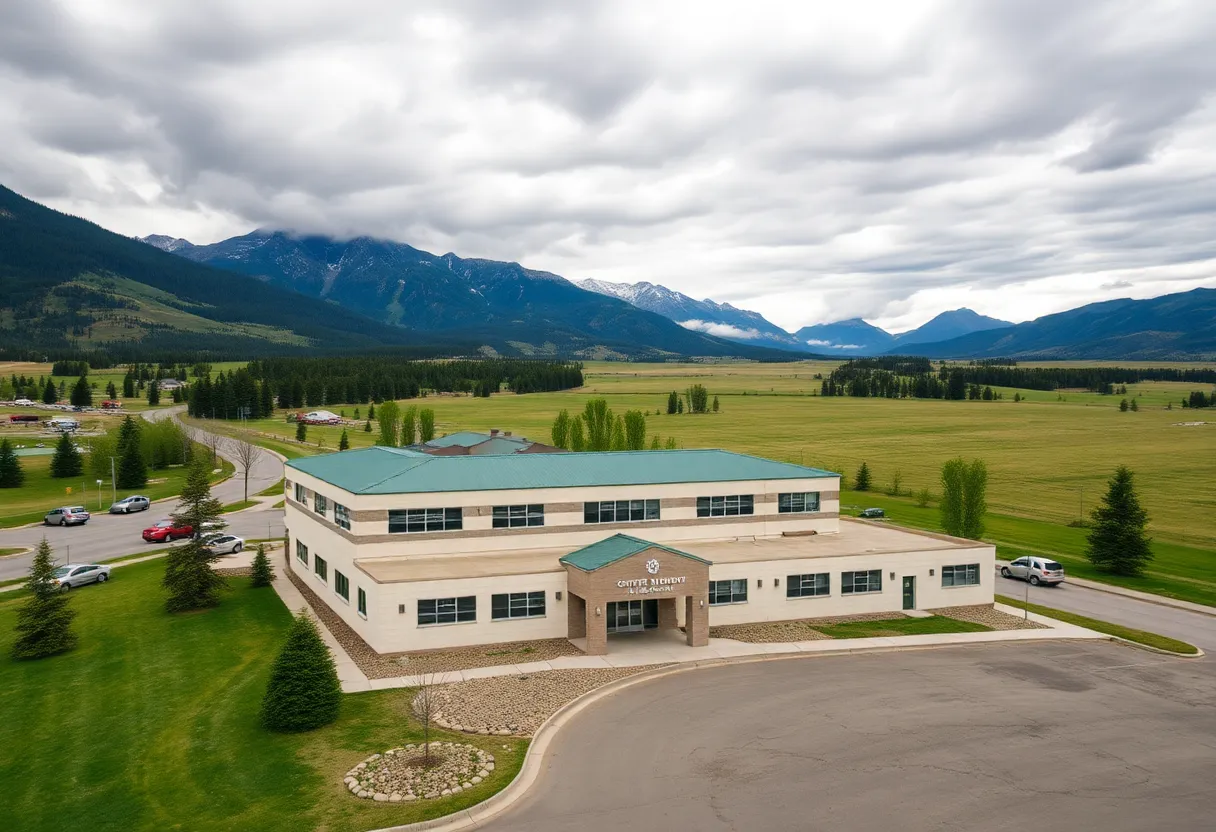News Summary
The unexpected closure of the CARD clinic in Libby, Montana, under legal orders, raises significant health concerns for the local community affected by asbestos exposure.
Clinic Closure Sends Shockwaves Through Libby, Montana
The Center for Asbestos Related Disease (CARD) clinic in Libby, Montana, has been abruptly closed under a court order, marking a significant blow to the community that has relied on its services for over two decades. This small town, home to roughly 3,000 residents and located just 50 miles from the U.S.-Canada border, has faced severe health complications due to asbestos exposure from nearby vermiculite mining since the 1920s.
Closure Details and Legal Battle
The Lincoln County Sheriff’s Office executed the closure to seize the clinic’s assets in order to cover a hefty $3.1 million judgment owed to BNSF Railway. This decision follows a legal battle that saw the prominent railroad company, owned by billionaire Warren Buffett, win a lawsuit in 2023, accusing CARD of submitting hundreds of fraudulent claims.
The court proceedings revealed shocking details, as the clinic was found guilty of submitting false claims on 337 occasions, including a staggering 91 violations post-November 2015. The writ of execution granting the seizure was filed on February 12, 2025, and executed just a few months later on May 7, 2025.
Impact on Health Services
For many residents, CARD has been a lifeline, offering crucial screening, monitoring, and treatment for those afflicted by diseases such as >asbestosis and meningitis. Established in 2000 and becoming an independent nonprofit in 2003, the clinic has been at the forefront of addressing the health crisis brought on by the surrounding environmental hazards.
Libby’s pollution problems are so severe that the Environmental Protection Agency included the city on its Superfund National Priorities List in 2002, acknowledging ongoing health risks from the contaminants. The devastating effects of this pollution led to numerous illnesses, particularly mesothelioma, which claimed the lives of residents
BNSF Railway’s Role
The involvement of BNSF Railway in this saga stems from their connection to asbestos-contaminated vermiculite present in the railyard. This pollution has been linked to the tragic deaths of local residents such as Thomas Wells and Joyce Walder, both also diagnosed with mesothelioma before their deaths in 2020. The court’s decision against CARD adds yet another chapter to this tragic narrative.
Future of the Clinic and Community Health
In a disturbing turn of events, the Sheriff’s Office stated they would secure the building temporarily until a court decision is made regarding CARD’s future. This involves changing locks and performing regular patrols, leaving community members anxious about what comes next. Tracy McNew, Executive Director of CARD, expressed views that BNSF’s actions contradict previous agreements made during prior bankruptcy proceedings.
In August 2023, the clinic had filed for Chapter 11 bankruptcy to continue its operation despite facing financial ruin. However, complications arose when the U.S. government intervened in the bankruptcy case, exacerbating the struggles of an already beleaguered clinic.
Ongoing Challenges and Community Reactions
Besides financial woes, CARD is also fending off a separate lawsuit alleging medical malpractice and wrongful death due to opioid prescriptions given without meeting diagnostic criteria for asbestos-related diseases. The fallout from these events has dire implications for public health, as the closure severely limits screenings for asbestos-related issues that many community members desperately need.
Adding to the concerns, CARD recently lost an appeal for a $6 million judgment awarded against it in the 2023 fraud case. A grant from the Centers for Disease Control and Prevention, which funded 80% of CARD’s operations from 2024 to 2029, now hangs in jeopardy due to ongoing government reviews.
Community’s Concerns for Public Health
The closure of the clinic leaves around 19 employees without jobs and the community’s health at stake. Lincoln County Sheriff Darren Short has voiced concerns about the potential health impacts on local residents and former CARD employees, emphasizing that the absence of essential medical services could lead to dire consequences for many.
The fallout from this closure will likely resonate for years to come, impacting not only the lives of those affected by asbestos exposure but also the broader narrative surrounding occupational health and environmental justice.
Deeper Dive: News & Info About This Topic
HERE Resources
Southern California Edison Faces Class Action After Fatal Eaton Fire
Closure of Libby’s Asbestos Screening Clinic Raises Public Health Concerns
Clinic Closure Sparks Fear in Libby, Montana
Residents of Branan Towers Raise Alarm Over Asbestos Exposure
Closure of Asbestos Screening Clinic Shocks Libby, Montana Community
Breakthrough for Pleural Mesothelioma Patients: HITOCH Procedure Shows Promise
The Alarming Rise of Oropharyngeal Cancer: Is Oral Sex the New Smoking?
Revolutionary Lung Bus Program Launches to Combat Dust Diseases in Regional NSW
Wrestling Star EJ Nduka Becomes a Free Agent After AEW Contract Expiration
Former AEW Star EJ Nduka Becomes a Free Agent Following Contract Expiration



















